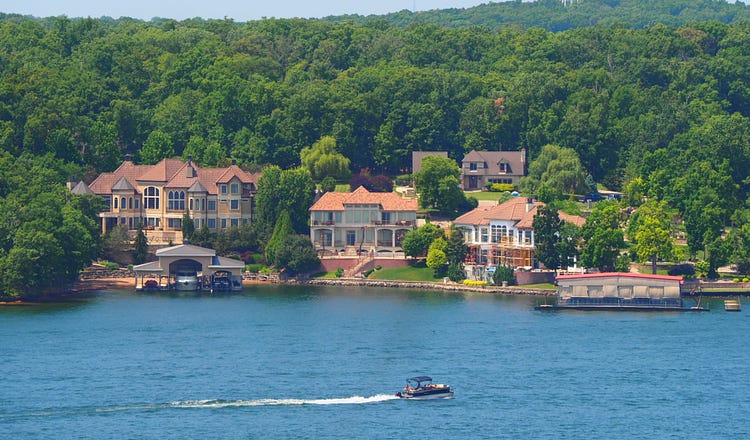Welcome to the MAGA Hamptons!

Lake of the Ozarks. (Max Meyer)
Every summer, the haute bourgeoisie of Middle America descend on Lake of the Ozarks to jet ski, barbecue ribs, and (until 2023) drink a shit-ton of Budweiser.
637
The day I arrived at Lake of the Ozarks—the spider-shaped reservoir in the middle of Missouri, where Midwest Missour-ee starts turning to Southern Missour-ah—Mark Cuban, the tech billionaire and Dallas Mavericks owner, also paid a visit. This was a few weeks ago.
It was odd. Cuban is a card-carrying member of the glitterati. He has a $19 million vacation…
Continue Reading The Free Press
To support our journalism, and unlock all of our investigative stories and provocative commentary about the world as it actually is, subscribe below.
$8.33/month
Billed as $100 yearly
$10/month
Billed as $10 monthly
Already have an account?
Sign In

